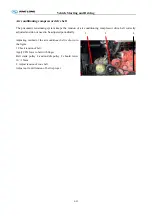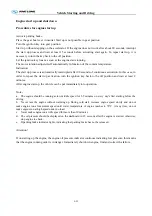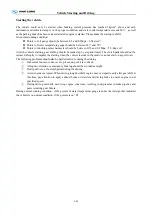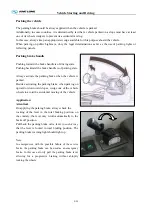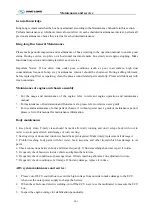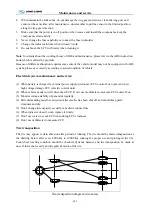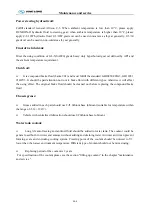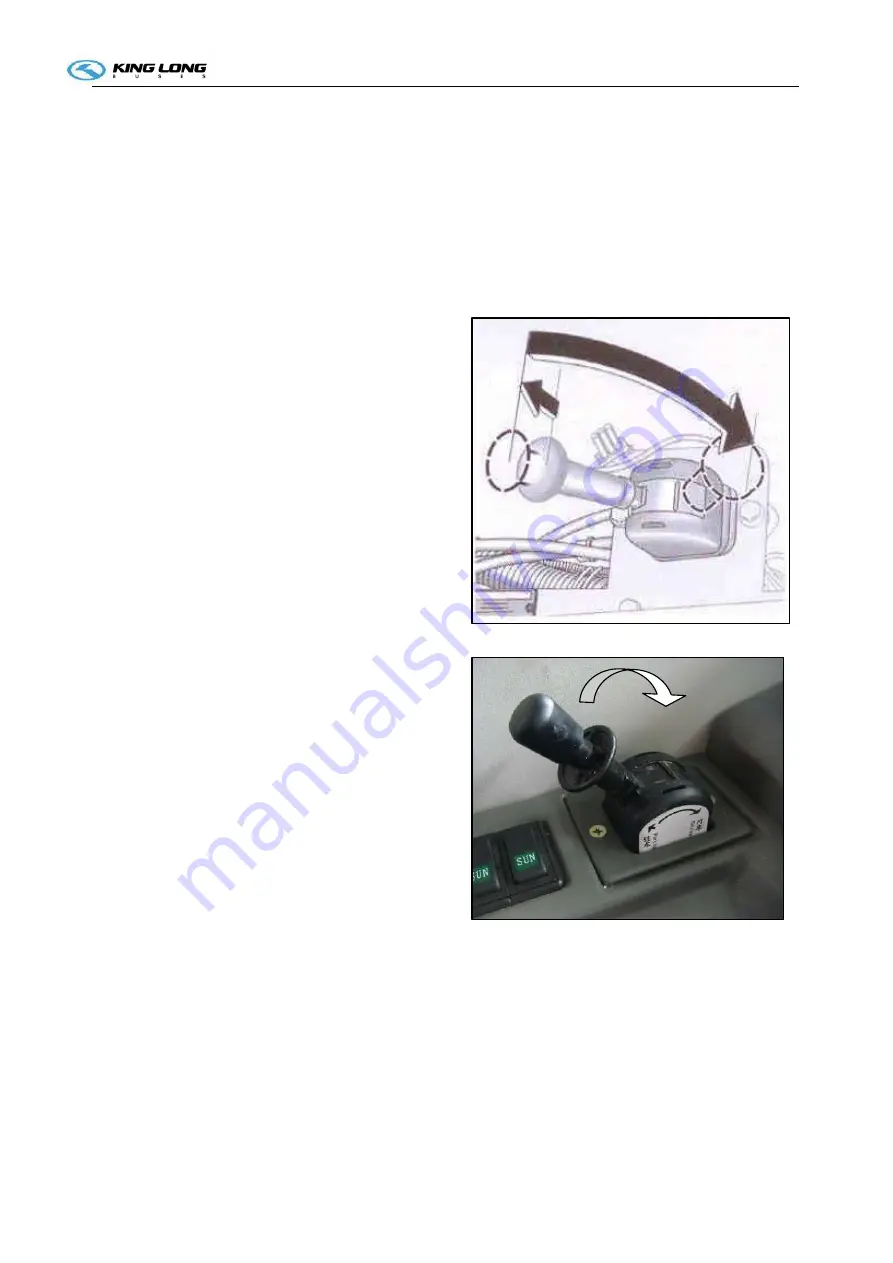
Vehicle Starting and Driving
S-29
Parking the vehicle
The parking brake should be always applied when the vehicle is parked.
Additionally, in some countries, it is determined by law that a vehicle parked on a slope must have at least
one of its wheels wedged, to prevent its accidental moving.
In this case, always keep an appropriate wedge available for this purpose aboard the vehicle.
When parking on public highways, obey the legal determinations as far as the use of parking lights or
reflecting panels.
Parking brake handle
Pushing forward the brake handle is of driving state.
Pushing backward the brake handle is of parking state.
Always activate the parking brake when the vehicle is
parked.
Besides activating the parking brake, when parking on
upward or downward slopes, wedge one of the vehicle
wheels to avoid the accidental moving of the vehicle.
Application
Attention!
On applying the parking brake, always check the
locking of the lever in the total braking position, on
the contrary, the lever may return automatically to the
brake off position.
Pull back the parking brake valve lever in such a way
that the lever is locked in total braking position. The
parking brake warning light should light up.
Note:
In emergencies, with the possible failure of the service
brake, the parking brake can be used as an emergency
brake. In this case, slowly pull the parking brake lever
allowing for a progressive braking without abruptly
locking the wheels.
Summary of Contents for XMQ6120C series
Page 36: ...Technical parameter and complete vehicle description 0 K 1 Lock1 Lock 2 Lock 3 ...
Page 133: ...Appendix A 4 Air braking schematic diagram ...
Page 134: ...Appendix A 4 Electric schematic diagram of the complete vehicle 1 ...
Page 135: ...Appendix A 5 Electric schematic diagram of the complete vehicle 2 ...
Page 136: ...Appendix A 5 Electric schematic diagram of the complete vehicle 3 ...
Page 137: ...Appendix A 5 Electric schematic diagram of the complete vehicle 4 ...









